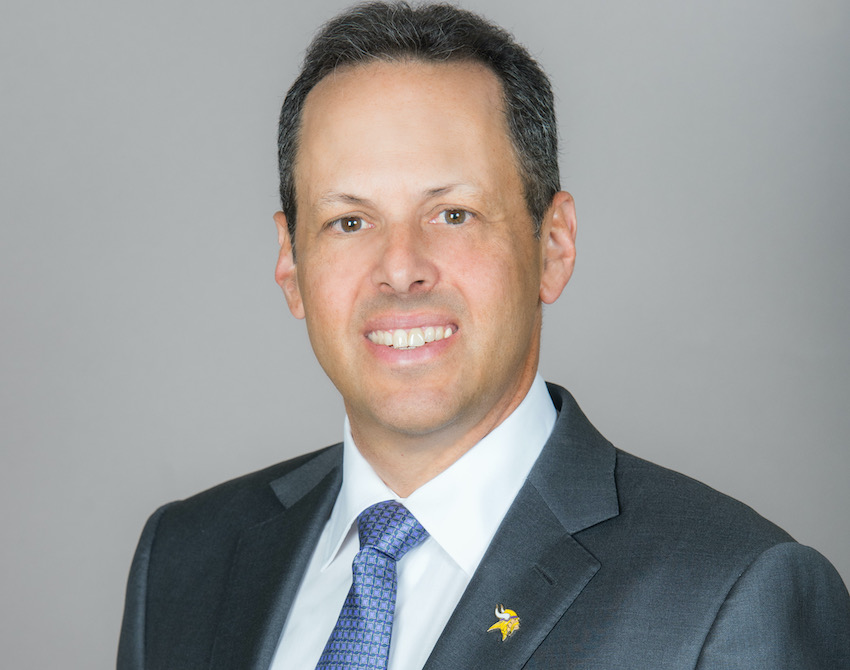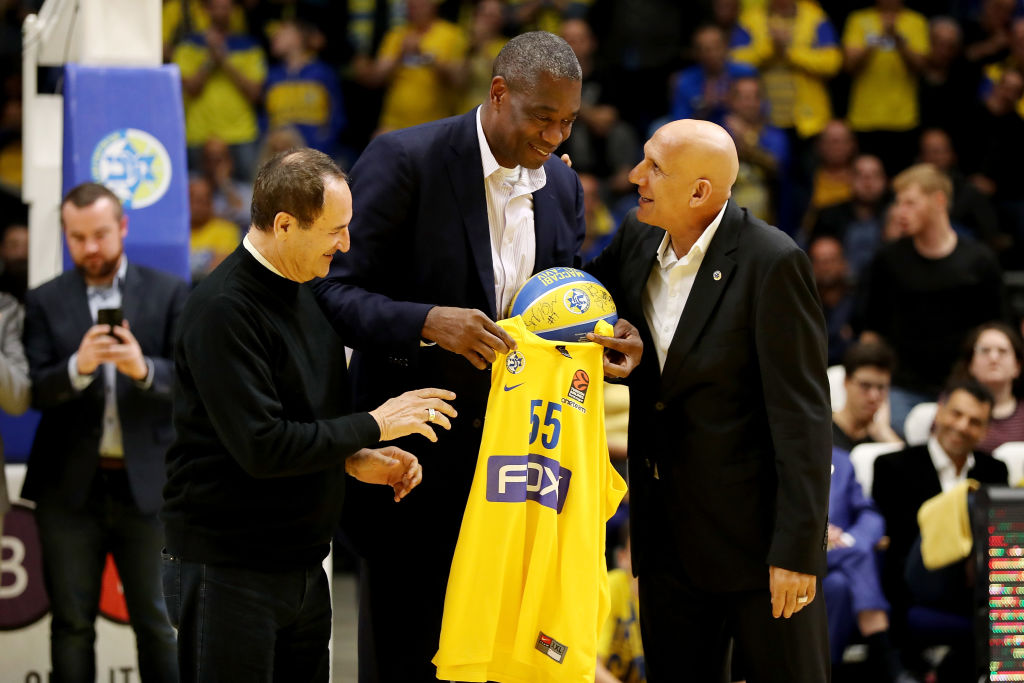Your Daily Phil: An interview with Mark Wilf + European Jewish summer camp
Good Monday morning!
Fourteen donors have contributed $350,000 to the Jewish Federation of Greater Washington’s Endowment Fund, which will be channeled to Lutheran Social Services National Capital Area (LSSNCA), a leader of Afghan resettlement efforts in the Washington, D.C. region, Daniel Solomon, a federation trustee, told eJewishPhilanthropy.
“Jews have a deep appreciation for the plight of people who have been driven from their homeland,” Solomon said. “All Americans should help protect Afghans who have risked their lives to help us. So it’s all the better if I can do that through a Jewish vehicle.”
About 500 refugees are being resettled in the D.C. region in August, and 500 more might come through September. LSSNCA had identified a funding gap of $1.8 million for these efforts, which includes housing and food.
The endowment fund first approached a small number of donors and funders, and will now invite the entire membership to support Lutheran Social Services’ resettlement effort, said Zach Briton, the federation’s chief development officer.
“As a funder, I appreciate that the federation reached outand found the right partner,” Solomon said. “I very much believe in not reinventing the wheel.”
The ask
Wilf family focuses new giving on social justice issues


Courtesy
The Wilf Family Foundations’ latest grant announcement of $4 million to 27 organizations, such as Black Voters Matter and the Center on Policing at Rutgers University, are part of the foundations’ new focus on issues such as voting rights, entrepreneurship among people of Color and police reform. The family, which owns the Minnesota Vikings, was inspired to make the new commitment after talking with team members in the wake of George Floyd’s death last year, Mark Wilf, chair of the Jewish Federations of North America, told eJewishPhilanthropy’s Helen Chernikoff.
This interview has been edited for length and clarity.
HC: How did you learn more about these new grant areas? Did you do any hiring, or consult with outside experts?
MW: There were a variety of inputs. As you know, in our day jobs, we own a sports team, the Minnesota Vikings. Through that, we personally became exposed, of course, to the George Floyd murder and the events of last year. We developed conversations with some of our players and staff to get their feedback on what’s going on, how they’re reacting to it and how best to respond. Also, we interact with other foundations that have been in these spaces for a long time, like Schusterman and others, just to kind of get some feedback, to learn how they approach this work and how they staff it.
HC: Can you tell me a little bit about the interactions with the players?
MW: For many years now, we have had a social justice committee on the team that’s about six to eight players, the general manager, coaches and staff, as well as ourselves. We had conversations — prior to COVID, of course, in person. We shared our own backgrounds, in terms of being the children of Holocaust survivors and immigrants, and how important it is for our family to focus on tolerance and a better society. That’s always been important to us, as a foundation. And then we heard from the players, about the kind of backgrounds they grew up in. The locker room is a great microcosm. Those players come from every walk of American life, and also outside of America — all backgrounds and all ethnicities and religions. That kind of environment is a very close environment, a very bonded environment.
HC: Switching to another area that I know is important to you. What compels you about federation?
MW: Well, to use your words, I think if we’ve learned anything these past two years, it is that it’s not necessarily the shiny new objects that get you through the most challenging times. That’s why you need community. That’s why you need togetherness. And that’s why you need the kind of response that only a large network, like our federation system, can provide. It’s a network that’s really in many communities over a century old. It’s how Jewish life was built in North America. When my parents came to America, they were sponsored by the Birmingham Jewish community in Alabama, and that’s where they went, in 1950. I grew up in a household where federation was very important to my parents and to our family. In high school, I was involved in the teen division. I went to Super Sunday with my dad. I welcomed Russian immigrants to new apartments in Elizabeth, N.J.
#Summer 2021
European Jewish summer camp is building the future, now


Balint House JCC Budapest
“Local Jewish summer camps and Shabbat camping experiences in Europe are back,” writes Sasha Friedman, director of Camp Szarvas, in an opinion piece for eJewishPhilanthropy.
Pipeline to the future: “August in Europe. Children and young adults can be found running in the woods, laughing and gossiping at a communal meal, and playing soccer on open fields. Intertwined with these activities are Shabbat melodies, Jewish history lessons and family tales of Jewish identities rediscovered or passed on to a new and willing generation… No, this bucolic scene was not from two summers ago, but has happened, or will, this month in Hungary, Romania, Slovakia, Czech Republic, Poland and the Baltics. Local Jewish summer camps and Shabbat camping experiences in Europe are back, overflowing with enthusiasm and joy. All of this took place on a continent still grappling with COVID-19, slow vaccination rollouts, and against a backdrop that many portend is not hospitable to a Jewish future… And yet, Jewish life found a way and Jewish camping remains a pipeline to that future.”
Facts on the ground: “One could not erase the current circumstances they face: rolling lockdowns, unemployment and growing social need, and loss of touchpoints for human interaction. Children especially have been yearning for socialization. And with Jewish communities forced to move programming online, and antisemitism rising in the region, the need for Jewish gathering and pride has become even more essential.”
Local leaders: “What I have seen has been inspiring and provides valuable insights for global Jewish communities trying to keep Jewish life thriving at a time of Zoom fatigue and in-person High Holiday plans upended by the Delta variant… [T]he creativity, perseverance, and desire of young Jewish leaders in communities throughout Europe to make meaningful camp experiences during this time is a testament to the lasting effects positive Jewish experiences can have on a kid.”
MEANINGFUL CHANGE
Teacher wellness: Relaxation and recovery


iStock
“Never has the ‘final bell’ on the last day of school meant as much as it did in 2021. Throughout the year, teachers in Jewish day schools worked with fewer (if any) breaks during the day; monitored social distancing measures inside and outside of the learning environment; and faced the repeated anxiety of teaching in-person,” writes Judith Talesnick, managing director of professional learning and growth at The Jewish Education Project, in an opinion piece for eJewishPhilanthropy.
Recovery and relaxation: “As we approach the end of summer—and a school year that won’t be as ‘normal’ as we all hoped– some discussions among educational leaders have centered on the need for specific mental health supports for teachers this year. From these discussions, two overlapping questions emerge: How are teachers learning to use strategies and tools to promote better mental health? What did last year and this summer teach us about teacher recovery and relaxation?”
2021-22 school year: “With the rise of the Delta variant, the giddiness of the post-vaccination summer is now replaced by the dread of illness and return of stricter COVID restrictions. Elementary school teachers may have to return to concurrent, hybrid and Zoom teaching. No one can predict how students or teachers will respond to the reality that 2021-22 may look like last year and feel even worse because of the anticipation of ‘being done with COVID.’”
Worthy Reads
New Generation: In a Press-Telegram reflection on the history of philanthropy in Long Beach, Calif., Rich Archbold connects Adelaide Tichenor, the grande dame of donors who established many of the city’s public institutions a century ago, and Julie Meenan, founder of Long Beach Gives, which aims to raise $2 million this year to serve people affected by the coronavirus pandemic. Philanthropic supporters in their 40s and 30s tend to spend more time volunteering than contributing money, and they are also more passionate about broad causes than about any particular organization, Archbold observes. “Younger donors are reinventing what it means to do good, not just with the same organizations their parents have supported but to the broader community,” Meenan said. [PressTelegram]
Urgent Call: If churches are to survive the pandemic and the decline of religion — which has caused a decline in revenue for congregations — they must reimagine themselves and come to grips with the notion of virtual worshippers as donors, reports Jeff Brumley in a Baptist News Global article about a series of seminars hosted by the Center for Healthy Churches. While some churches managed to stay financially robust due to increased gifts or participation in the federal Paycheck Protection Program, smaller communities that did not have digital technology in place are struggling. “We know that a lot of our existing members that are now virtual members or virtual participants have chosen to give electronically,” said Paul Grier, vice president of Project Regeneration at the Presbyterian Foundation. [BaptistNewsGlobal]
Time Value Of Money: In Bloomberg, Leo Laikola and Kati Pohjanpalo interview Sanna Marin, the prime minister of Finland, who took a four-week summer vacation and came back to work determined to advocate for shorter hours, protections for workers and rules to prevent the encroachment of work on people’s lives. Marin started talking about the benefits of a four-day week as soon as she was elected, and while that specific policy is not a priority of her five-party coalition right now, she believes employees should share in the benefits of improved productivity — either through higher wages or shorter hours. “We need to change the world to improve people’s wellbeing and happiness,” she said. Shorter hours would mean “people would have more time for their families and loved ones, and their hobbies and life.” [Bloomberg]
Community Comms
Apply! Israel Policy Forum is hiring a Director of Public Engagement, Deputy Policy Director, Development Manager, Staff Associate, and Program Associate. Apply here to join IPF’s work in charting a viable path forward to the realization of a two-state solution and a Jewish, democratic, and secure Israel.
Be featured: Email us to inform the eJP readership of your upcoming event, job opening, or other communication.
Word on the Street
Tziona Koenig-Yair has been named director-general of the Ministry of Diaspora Affairs, replacing Dvir Kahana… Judaism Unbound is relaunching as The UnYeshiva… Fundraising website Virgin Money Giving, launched in 2008, will close at the end of November… The LEGO Foundation and KIRKBI, owners of the LEGO Group, announced grants totaling 100 million Danish Kroner ($15.7 million) to assist vulnerable children in Haiti and Afghanistan… U.S.-born Israeli journalist Joshua Mitnick died at age 50… London-based Rabbi Sheila Shulman died at age 77… Actor Ed Asner died at age 91…
Pic of the Day


ISRAELI EMBASSY; WASHINGTON, D.C.
With assistance from the Israeli Embassy and Chabad, Israeli Prime Minister Naftali Bennett’s team set up a shul at their Washington hotel due to an unexpected Shabbat stay.
Birthdays


Seffi Magriso/Euroleague Basketball via Getty Images
Basketball star in both the U.S. and Israel, a first round pick of the Baltimore Bullets in the 1965 NBA draft, Tal Brody…
Author and genealogist, Judith R. Frazin… Israeli settlement movement activist and a former mayor of Kedumim, Daniella Weiss… Stand-up comedian, political activist and voice actor, Lewis Niles Black… Author of the novel Dead Poets Society, Nancy H. Kleinbaum… Hasidic Rebbe of Zvhil-Mezhbizh based in Boston, Miami and Jerusalem, Rabbi Yitzhak Aharon Ira Korff… Producer for CBS News, Murray Weiss… Israeli vocalist who sings in Hebrew, Turkish and Spanish, he was a judge in the inaugural season of “The Voice Israel,” Shlomi Shabat… Actor, comedian and television director, David Paymer… Rosh yeshivah at Yeshivat Maale Gilboa and the rabbi of Kibbutz Lavi, he previously served as a member of the Knesset for the Meimad party, Rabbi Yehuda Gilad… Co-founder of the Maoz leadership network in Israel, Deborah Cogen Swartz… U.S. Senator (R-NC), Thom Tillis… Business manager of the Perth Amboy (NJ) Free Public Library, Herschel Chomsky… Partner at NJ-based law firm, Rubenstein, Marucci & Shinrod, Richard B. Rubenstein… Media executive and author of the recent New York Times bestseller First Friends: The Powerful, Unsung (and Unelected) People Who Shaped our Presidents, Gary L. Ginsberg… Member of the UK’s House of Lords and former executive editor of The Times of London, Baron Daniel Finkelstein… Associate producer at Fox News Channel, Eldad Yaron… Israeli television presenter, actor and singer, Tal Mosseri… Director of search and analytics for Politico, Mitchell Schuler… Founder of Daily Action, Laura Moser… Executive vice president and general counsel at GMF Capital, Simon Marciano… Political fundraiser in Massachusetts, Julia Hoffman… Actor, following in the footsteps of his father Dustin Hoffman, Max Hoffman… Harvard Kennedy School MPA graduate, now a freelance policy communications consultant, Margy Levinson… Project manager at Shalom Bayit Construction in Beverly Hills, Mati Geula Cohen…








